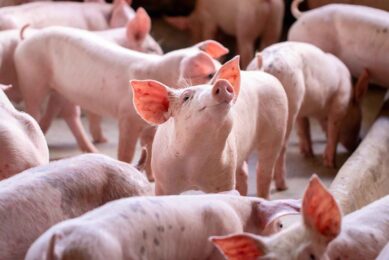Global science network to protect against animal diseases
The UK will be better protected against animal diseases like avian flu and foot and mouth thanks to a global network of scientific research to be launched by Defra this week.
Increasingly globalised movements of animals, people and food have raised the risk of animal diseases spreading to the UK, which could have serious economic, environmental and health consequences.
Defra is leading an international network, funded by the EU, linking thousands of scientists across the world. It will allow them to exchange research, establish common goals and collaborate on developing future controls. It will also underpin early warning systems by identifying what emerging diseases are being picked up abroad.
The €1million EU-funded network will include Canada, USA, Mexico, Argentina, Brazil, China, India, Japan, Australia, New Zealand, Russia, Italy, Germany, France, Spain, Denmark and the UK. It will be divided into three regions – the Americas, Asia and Australasia, and Europe – and surrounding countries are expected to feed in. It is hoped an Africa region will follow.
Examples of major diseases of concern are: Avian Influenza; new strains of Porcine Reproductive and Respiratory Syndrome Virus (PRRSV) which are circulating in China; and African Swine Fever, which has spread from Africa to Russia.
The network, which also involves the Biotechnology and Biological Sciences Research Council (BBSRC), will also help to develop control measures for current problems such as TB- or drug- resistant parasites.
It is estimated that 75% of emerging animal diseases can be transmitted to humans, often from wildlife via livestock. The network will allow information to be shared more quickly on conditions that affect humans such as nipah virus infection. An outbreak of this disease in people in Malaysia has been traced back to pigs catching the virus from the droppings of bats in palm trees.
The global network will also help improve the health and productivity of animals through hastening the development of improved control methods for existing diseases in the UK. This is crucial to meet the challenges of increasing food production and reducing the impact of livestock on the climate.
Defra is already leading on a similar EU network where member states work towards a common research agenda and share funding instead of acting unilaterally. So far it has initiated 12 research projects worth €21million – €3.9million of which was contributed by the UK.
The Defra-led network will also link up with the pharmaceutical industry to identify what products they would be prepared to make so that scientists can base research around a solid end product.











